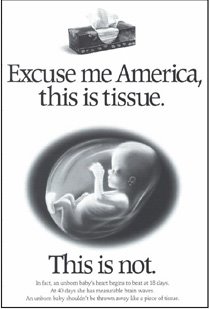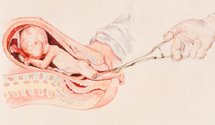Pell Concerned About The Passage Of Souls Into Heaven, Says The Australian
 Ok, so now maybe I'm feeling a little guilty.
Ok, so now maybe I'm feeling a little guilty.It's June 8 in Australia right now. This is an editorial hot off the press from The Australian, Australia's national daily newspaper. [scroll down to find the section which appears below]
Sunday is fast coming in Australia. Will we hear news of Cardinal Pell and a renegade Catholic politician presenting himself for Holy Communion?
LIKE a dog with a bone, Cardinal George Pell was at it again yesterday, reminding people that the Catholic Church is opposed to the destruction of human life and would never support the destruction of human embryos for stem cell research, not even if the result was a cure for the most debilitating disease of our times.
He was criticised on talkback radio and in the letters pages but here at The Australian, we admire the man even though we have always supported stem cell research. Pell believes in an eternal truth, and an afterlife. His views clash spectacularly with many advances in science and the ways in which people live in modern times.
But it is wonderful, in an age where the concept of a knowable truth has been rejected by scholars in favour of universal relevance, to find a major intellectual standing up for "eternal truth".
It is, after all, Pell's responsibility to remind Catholics of the rules that apply to Catholic lives. Catholics are not supposed to have an abortion, use birth control, cheat on their spouses or vote for legislation of the type that passed yesterday through the NSW parliament, that would allow destruction of human life, including human embryos.
This is a fixed Catholic position. It doesn't change with the times. Pell does not refer to opinion polls before deciding which legislation to support, the way politicians do. He is a man of firm principles by which he stands.
Recent polls suggest many Catholics support embryonic stem cell research. They still call themselves Catholics and take holy communion. But Pell cannot be swayed, not by scientists who believe they could put an end to great human suffering if allowed to work on stem cells or by the heart-rending appeals made by the parents of extremely sick children whose lives may one day be saved by cures that come from stem cell research.
If there were any doubt about the Catholic position, Perth Archbishop Barry Hickey made it clearer, saying the church would never support the destruction of human embryos and those Catholics who did support the legislation may well face excommunication.
The Prime Minister – who is not Catholic but is a man of faith – voted against a similar bill at the federal level last December, as did Opposition Leader Kevin Rudd. John Howard said yesterday that Pell and Hickey were church leaders doing exactly as expected: standing up for what the church believes. He did not regard either man as having moved inappropriately into the affairs of the state.
For his part, the Anglican Archbishop of Sydney, Peter Jensen, also expressed regret when the bill in favour of experimentation on embryos passed through the NSW lower house. He said politicians who voted for the bill were wrong to so do. But he also readily admitted that he might well be wrong and in the end, he will need to account to God for his opposition to the technology.
On the other hand, and at the risk of appearing mischievous, is it possible that Pell has some inside information? Just as he was urging Catholics in the NSW parliament not to vote for the bill that would allow for the destruction of human embryos came stunning news that three separate teams of scientists had claimed to have turned an ordinary skin cell into an embryonic stem cell, without creating or destroying an embryo in the process.
If that process – so far carried out only on mice but already front-page news in New York, Washington, London and Tokyo – can be applied to humans, the debate over the use of embryonic stem cells would end. One of the more vexing issues of our time would disappear. Research could proceed. People of all faiths would perhaps feel more comfortable.
There is a separation between church and state and we treat it seriously. Perhaps that is why a sanguine Pell took the vote in NSW – the bill passed, 65 votes to 26 – on the chin, saying: "In our democracy, parliament legislates." Yes, it does. So it should. But Pell has done well to remind Catholics that there is another set of rules, older than parliament, older than time, that is central to their faith, indeed to the passage of their souls into heaven.
A vast majority of Australians consider such rules irrelevant, even ridiculous. That's fine. Nobody says Australians have to live by Catholic rules. But the Catholic Church says Catholics must live by those rules, and that's all Pell is saying.


























0 Comments:
Post a Comment
<< Home